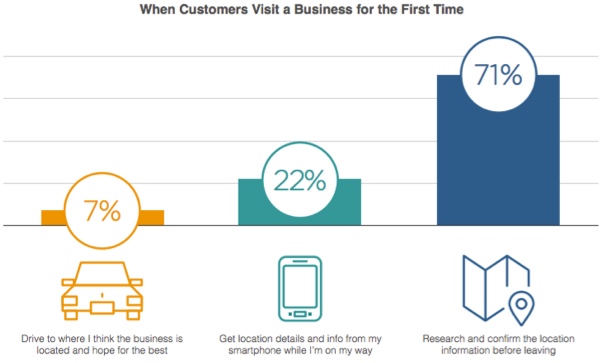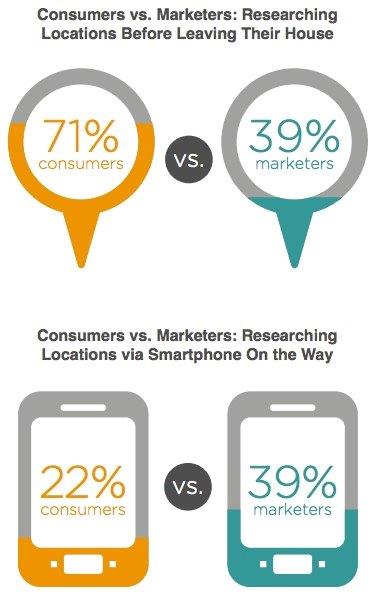An incorrect online local listing of your business and your prospective customer might end up visiting a nearby competitor. According to a recent survey released by Placeable, a majority of people lose confidence in the local brand due to an incorrect online local listing of the business. 73% confirmed their loss of trust in the brand when this happens, while 67% said that they experience a similar feeling if they get lost due to wrong location information.
Regardless of whoever is at fault for the erroneous listing, inaccuracies in the data can highly disappoint a customer and make him lose trust in your brand. As put in the report, “Brands that fail to ensure the accuracy of search engine location data run the risk of not only missing out on new customers, but jeopardizing their relationships with existing customers as well.”
According to the report, one third of consumers ascribe an incorrect listing in search directories to brands. 69% inculpated the search directories, like Yelp or Yellow Pages, for the error while 31% accused the brands. Before visiting a store for the first time, 71% of consumers look up and confirm the location of a local business online. This emphasizes how critical it is to have accurate data in location based advertising.
Comparing marketers’ behaviors vs the average consumer, the report revealed that 39% of marketers surveyed researched locations before leaving their house. Another 39% confirmed that they use their smartphones to search for locations on their way against mere 22% consumers.
The report said that marketers are more inclined towards personalized offers than consumers. 72% marketers said that they prefer personalized marketing compared to 55% of consumers. Marketers are also more prone to sharing information on social networks than the average person. They outnumber the consumers when it comes to engaging with traffic apps to share traffic information or weather apps to report on weather conditions. The data showed that less than 50% of the marketers surveyed and restricted the information they shared to location only while nearly two-thirds of consumers said they preferred to limit their social sharing to just location information.









